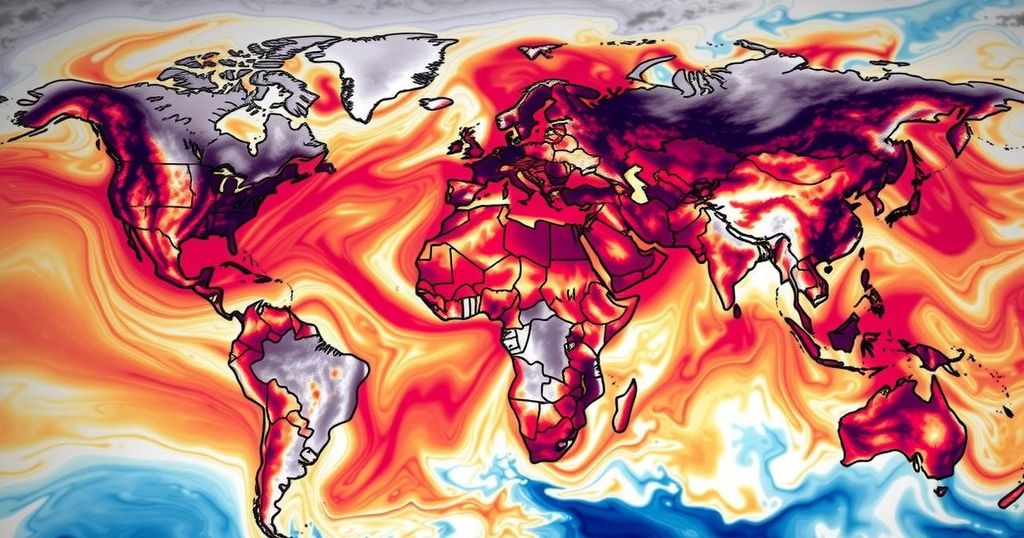The UN has declared that 2024 concludes a decade of extreme heat, marking the ten hottest years on record. Secretary-General Antonio Guterres stressed the need for immediate action against climate change, which is manifesting through severe weather events exacerbated by human activity. The World Meteorological Organization confirmed that 2024 is slated to be the warmest year yet, showcasing the urgent necessity for global cooperation in combating climate risks.
In a recent announcement, the United Nations highlighted that 2024 has marked the culmination of a decade characterized by extreme heat, with the past ten years recording the highest temperatures to date. UN Secretary-General Antonio Guterres emphasized the urgent need to abandon this path towards environmental destruction as climate change continues to escalate, leading to severe weather anomalies. The World Meteorological Organization (WMO) confirmed that the year is poised to be the warmest on record, underscoring the significant role of human activities in driving these trends.
As greenhouse gas levels consistently reach unprecedented levels, the WMO warned that this situation is exacerbating heat retention in the atmosphere and resulting in increasingly volatile weather patterns. Secretary-General Guterres remarked on the climate crisis as a tangible reality, urging immediate actions such as slashing emissions and transitioning to renewable energy by 2025. The implications of even a slight increase in temperatures have become evident, with extensive climate-induced catastrophes occurring globally.
The WMO’s Secretary-General Celeste Saulo noted that every degree of warming contributes to more severe climatic events. Recent instances of extreme rainfall, flooding, and wildfires have devastated communities worldwide, resulting in tragic loss of life. A recent report indicated that climate change intensified nearly all examined extreme weather events in 2024, resulting in thousands of casualties and displacing millions. The necessity for collaborative international efforts to address the threat of extreme heat risks is more pressing than ever in the context of rising global temperatures.
The UN’s critique of the escalating climate emergency is rooted in the observable patterns of temperature changes and their consequential effects on global weather. Over the last decade, the world has witnessed unprecedented heat levels attributable to human-induced greenhouse gas emissions. This trend poses numerous challenges, including increased occurrences of extreme weather events, destruction of ecosystems, and significant socio-economic impacts, particularly for vulnerable communities.
The UN’s warnings about the severe implications of rising temperatures frame a critical moment for global action against climate change. It is imperative for nations to commit to ambitious emission reduction strategies and renewable energy transitions to avert further climatic crises. The dire predictions emphasize that every fraction of a degree is consequential, necessitating immediate and collective responsibility to secure a sustainable future.
Original Source: www.perspectivemedia.com






